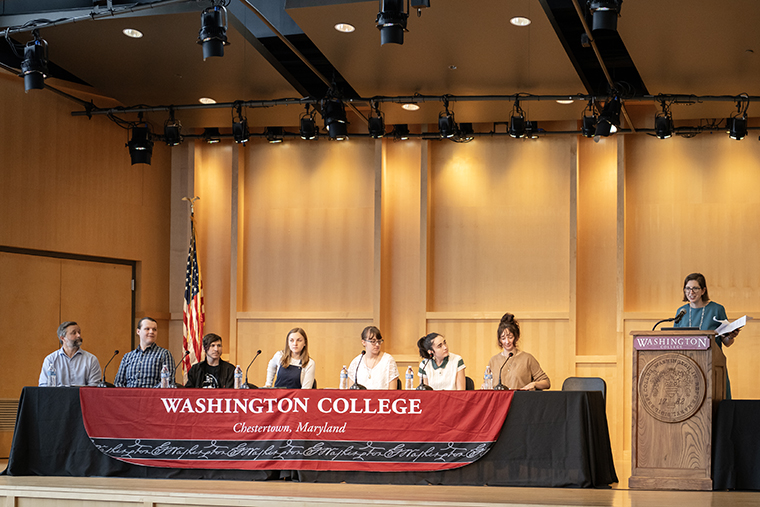The symposium was a tremendous success when measured by interest, attendance, and audience participation. Three panels of experts from the Washington community discussed AI’s impact on everything from poetry and art to job interviews conducted by bots to the end of humanity. The keynote speech, delivered by College board member Ryder Daniels ’90, addressed AI’s already enormous impact on business and society and what we need to do going forward.
AI is a mainstay villain of science fiction, with cyborgs and androids turning against their human masters or supercomputers harnessing robots and other machines to take over the planet. In reality, AI has quietly entered everyday life and is already so ubiquitous as to be almost invisible. When you enter a query into a search engine, talk to Siri or Alexa, or turn on subtitles to binge-watch a show on Netflix, you’re interacting with a limited form of AI. In the medical and research fields, AI has been used to identify cancerous cells in scans more efficiently than doctors. It has been able to search through massive databases to identify drugs that may treat diseases and conditions they were not developed to treat. A little more worrying is the rapid development of generative AI—a type of AI that can learn, change, and evolve with use—especially large language models. These can write a researched and well-written essay on Shakespeare for a college senior or generate fake news stories and flood social media with comments that appear to be from real people on a scale that would dwarf the Russian interference in the 2016 Presidential election.
All the panelists agreed that AI is evolving and advancing rapidly and is so large a subject it can’t easily be pigeonholed. The central themes of the symposium were to identify how AI is affecting specific spheres now, where it is leading us, and how rapidly and significantly it is about to alter our world.
